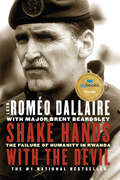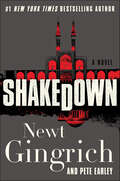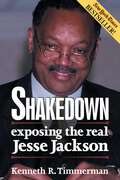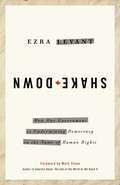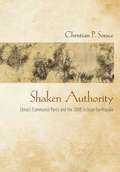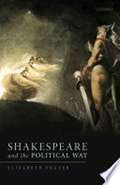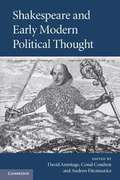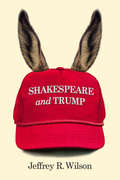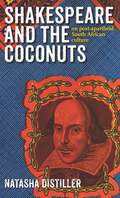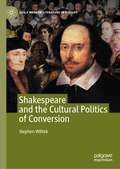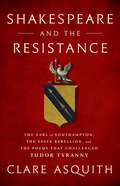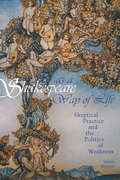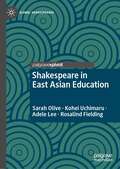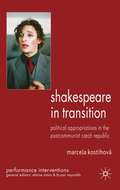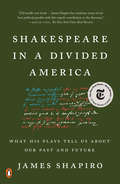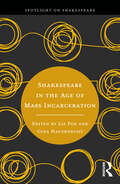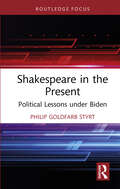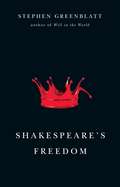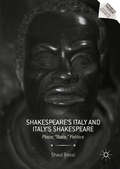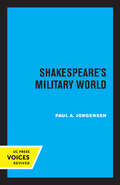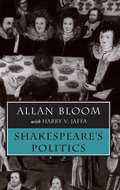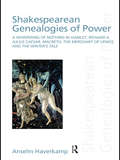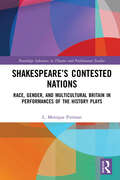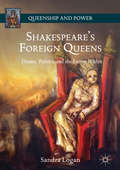- Table View
- List View
Shake Hands With the Devil: The Failure of Humanity in Rwanda
by Romeo DallaireOn the tenth anniversary of the date that UN peacekeepers landed in Rwanda, Random House Canada is proud to publish the unforgettable first-hand account of the genocide by the man who led the UN mission. Digging deep into shattering memories, General Dallaire has written a powerful story of betrayal, naïveté, racism and international politics. His message is simple and undeniable: “Never again.”When Lt-Gen. Roméo Dallaire received the call to serve as force commander of the UN intervention in Rwanda in 1993, he thought he was heading off on a modest and straightforward peacekeeping mission. Thirteen months later he flew home from Africa, broken, disillusioned and suicidal, having witnessed the slaughter of 800,000 Rwandans in only a hundred days. In Shake Hands with the Devil, he takes the reader with him on a return voyage into the hell of Rwanda, vividly recreating the events the international community turned its back on. This book is an unsparing eyewitness account of the failure by humanity to stop the genocide, despite timely warnings.Woven through the story of this disastrous mission is Dallaire’s own journey from confident Cold Warrior, to devastated UN commander, to retired general engaged in a painful struggle to find a measure of peace, reconciliation and hope. This book is General Dallaire’s personal account of his conversion from a man certain of his worth and secure in his assumptions to a man conscious of his own weaknesses and failures and critical of the institutions he’d relied on. It might not sit easily with standard ideas of military leadership, but understanding what happened to General Dallaire and his mission to Rwanda is crucial to understanding the moral minefields our peacekeepers are forced to negotiate when we ask them to step into the world’s dirty wars.Excerpt from Shake Hands with the DevilMy story is not a strictly military account nor a clinical, academic study of the breakdown of Rwanda. It is not a simplistic indictment of the many failures of the UN as a force for peace in the world. It is not a story of heroes and villains, although such a work could easily be written. This book is a cri de coeur for the slaughtered thousands, a tribute to the souls hacked apart by machetes because of their supposed difference from those who sought to hang on to power. . . . This book is the account of a few humans who were entrusted with the role of helping others taste the fruits of peace. Instead, we watched as the devil took control of paradise on earth and fed on the blood of the people we were supposed to protect.From the Hardcover edition.
Shakedown: A Novel (Mayberry and Garrett #2)
by Newt Gingrich Pete EarleyMayberry and Garrett, introduced in the national bestseller Collusion, are caught in the middle of a deadly crisis with a pending nuclear bomb attack and little help from the government that sidelined them both.When an exiled Iranian scientist is assassinated in Washington, DC, the former FBI counterintelligence agent and ex-SEAL are pulled back into the world of clandestine ops—and the fate of the entire East Coast is at stake. Joining ranks with a heralded Mossad agent, Mayberry and Garrett pursue a skilled international killer hired to murder a legendary Israeli spymaster. Their pursuit draws them into an international conspiracy led by a power-hungry Russian oligarch intent on destroying Washington, DC, and the Navy’s most important Atlantic base. The oligarch plots to unleash a nuclear onslaught first devised by the KGB but shelved by Kremlin leaders during the Cold War. On top of this, Iran’s sudden offer to help the United States raises suspicions about its possible role in a global shakedown. With too many enemies emerging and too little time, the two Americans are forced to operate outside official channels to stay ahead of naive US politicians and foreign enemies out to entangle their efforts in red tape. Operating in an international tinderbox, Mayberry and Garrett must decipher which players are allies and which are posers—in time to thwart a cataclysmic nuclear attack on US soil and prevent an international incident that could ignite a third world war. And they must keep themselves alive.
Shakedown: Exposing the Real Jesse Jackson
by Kenneth R. TimmermanFew political figures in America today arouse as much passion as the Reverend Jesse Jackson. A hero to some in the black community, Jackson is credited with helping to break down barriers to political and economic access. But to other black leaders, Jackson has become a symbol for all that has gone wrong with their community. "Jesse virtually invented black racism," the Reverend Johnny Hunter, a black pastor from Virginia Beach, tells me. The Reverend Jesse Lee Peterson, a black conservative, calls Jackson a "gatekeeper of black progress" and a "race hustler"1 who has cashed in on white guilt to fund an opulent lifestyle and a personal power base. "He is really just a David Duke in black skin," Peterson says.
Shakedown: How Our Government is Undermining Democracy in the Name of Human Rights
by Ezra LevantPart memoir, part investigative journalism, this is a shocking and controversial look at the corruption of Canada's human rights commissions."On January 11, 2008, I was summoned to a 90-minute government interrogation. My crime? As the publisher of Western Standard magazine, I had reprinted the Danish cartoons of Mohammed to illustrate a news story. I was charged with the offence of "discrimination," and made to appear before Alberta's "human rights commission" for questioning. As crazy as it sounds, I became the only person in the world to face legal sanction for printing those cartoons."As a result of this highly publicized event, Ezra Levant began investigating other instances in which innocent people have had their freedoms compromised by bureaucrats presuming to protect Canadians' human rights. He discovered some disturbing and even bizarre cases, such as the tribunal ruling that an employee at a McDonald's restaurant in Vancouver did not have to wash her hands at work. And the human rights complaint filed by a Calgary hair stylist against the women at a salon school who called him a "loser." In another case that seemed stranger than fiction, an emotionally unstable transvestite fought for -- and won -- the right to counsel female rape victims, despite the anguished pleas of those same traumatized victims. Human rights commissions now monitor political opinions, fine people for expressing politically incorrect viewpoints, censor websites, and even ban people, permanently, from saying certain things. The book is a result of Levant's ordeal and the research it inspired. It shows how our concept of human rights has morphed into something dangerous and drastically different from its original meaning. Shakedown is a convincing plea to Canadians to reclaim their basic liberties.From the Hardcover edition.
Shaken Authority: China's Communist Party and the 2008 Sichuan Earthquake
by Christian P. SoraceIn Shaken Authority, Christian P. Sorace examines the political mechanisms at work in the aftermath of the 2008 Sichuan earthquake and the broader ideological energies that drove them. Sorace takes Communist Party ideas and discourse as central to how that organization formulates policies, defines legitimacy, and exerts its power. Sorace argues that the Communist Party has never abandoned its conviction that discourse can shape the world and the people who inhabit it. Sorace also demonstrates how the Communist Party’s planning apparatus continues to play a crucial role in engineering China’s economy and market construction, especially in the countryside. Sorace takes a distinctive and original interpretive approach to understanding Chinese politics, and Shaken Authority demonstrates how Communist Party discourse and ideology influenced the official decisions and responses to the Sichuan earthquake. Sorace provides a clear view of the lived outcomes of Communist Party plans, rationalities, and discourses in the earthquake zone. The three case studies he presents each demonstrate a different type of reconstruction and model of development: urban-rural integration, tourism, and ecological civilization. Sorace’s work emphasizes the need for a grounded literacy in the political concepts, discourses, and vocabularies of the Communist Party itself. To dismiss China’s official discourse as "empty propaganda," Sorace argues, makes China and Chinese realities harder to understand, not easier.
Shakespeare And The Political Way
by Elizabeth FrazerStudies of Shakespeare and politics often ask the question whether his dramas are on the side of aristocratic or monarchical sovereign authority, or are on the side of those who resist; whether he endorses a standard view of male and patriarchal authority, or whether his cross-dressing heroines put him among feminist thinkers. Scholars also show that Shakespeare's representations of rule, revolt, and arguments about laws and constitutions draw on and allude to stories and real events that were contemporaneous for him, as well as historical ones. <p><p> Building on scholarship about Shakespeare and politics, this book argues that Shakespeare's representations and stagings of political power, sovereignty, resistance, and controversy are more complex. The merits of political life, as opposed to life governed by monetary exchange, religious truth, supernatural power, military heroism, or interpersonal love, are rehearsed in the plots. And the clashing and contradictory meanings of politics -- its association with free truthful speech but also with dishonest hypocrisy, with open action and argument as much as occult behind the scenes manoevring -- are dramatized by him, to show that although violence, lies, and authoritarianism do often win out in the world there is another kind of politics, and a political way that we would do well to follow when we can. The book offers original readings of the characters and plots of Shakespeare's dramas in order to illustrate the subtlety of his pictures of political power, how it works, and what is wrong and right with it.
Shakespeare and Early Modern Political Thought
by David Armitage Conal Condren Andrew FitzmauriceThis is the first collaborative volume to place Shakespeare's works within the landscape of early modern political thought. Until recently, literary scholars have not generally treated Shakespeare as a participant in the political thought of his time, unlike his contemporaries Ben Jonson, Edmund Spenser and Philip Sidney. At the same time, historians of political thought have rarely turned their attention to major works of poetry and drama. A distinguished international and interdisciplinary team of contributors examines the full range of Shakespeare's writings in order to challenge conventional interpretations of plays central to the canon, such as Hamlet; open up novel perspectives on works rarely considered to be political, such as the Sonnets; and focus on those that have been largely neglected, such as The Merry Wives of Windsor. The result is a coherent and challenging portrait of Shakespeare's distinctive engagement with the characteristic questions of early modern political thought.
Shakespeare and Trump
by Jeffrey R. WilsonShould we draw an analogy between Shakespeare’s tyrants—Richard III, Julius Caesar, Macbeth, and King Lear—and Donald Trump? In Shakespeare and Trump, Jeffrey Wilson applies literary criticism to real life, examining plot, character, villainy, soliloquy, tragedy, myth, and metaphor to identify the formal features of the Trump phenomenon, and its hidden causes, structure, and meanings. Wilsonapproaches his comparison prismatically. He first considers two high-concept (read: far-fetched) Shakespeare adaptations penned by Trump’s former chief political strategist Steve Bannon. He looks at University of Pennsylvania students protesting Trump by taking down a monument to Shakespeare. He reads Trump’s first 100 days in office against Netflix’s House of Cards. Wilson also addresses the summer 2017 Shakespeare in the Park production of Julius Caesar wherein an assassination of a Trump-ian leader caused corporations to withdraw sponsorship. These stories reveal a surprising—and bizarre—relationship between the provincial English playwright and the billionaire President of the United States, ostensibly a medieval king living in a modern world. The comparison reveals a politics that blends villainy and comedy en route to tragedy.
Shakespeare and the Coconuts: On post-apartheid South African culture
by Natasha DistillerA unique look at Shakespeare's works' influence on South African writingIn this book Natasha Distiller explores historic and contemporary uses of Shakespeare in South African society which illustrate the complexities of colonial and post-colonial realities as they relate to iconic Englishness. Beginning with Solomon Plaatje, the author looks at the development of an elite group educated in English and able to use Shakespeare to formulate South African works and South African identities. Refusing simple or easy answers, Distiller then explores the South African Shakespearian tradition postapartheid. Touching on the work of, amongst others, Can Themba, Bloke Modisane, Antony Sher, Stephen Francis, Rico Schacherl and Kopano Matlwa, and including the popular media as well as school textbooks, Shakespeare and the Coconuts engages with aspects of South Africa's complicated, painful, fascinating political and cultural worlds, and their intersections. Written in an accessible style to explain current cultural theory, Shakespeare and the Coconuts will be of interest to students, academics and the general interested reader.
Shakespeare and the Cultural Politics of Conversion (Early Modern Literature in History)
by Stephen WittekThis book takes a close look at Shakespeare’s engagement with the flurry of controversy and activity surrounding the concept of conversion in post-Reformation England. For playhouse audiences during the period, conversional thought encompassed a markedly diverse, fluid amalgamation of ideas, practices, and arguments centered on the means by which an individual could move from one category of identity to another. In an analysis that includes chapter-length readings of The Taming of the Shrew, Henry IV Part I, The Merchant of Venice, Othello, and The Tempest, the book argues that Shakespearean drama made a unique and substantive intervention in public discourse surrounding conversion, and continues to speak meaningfully about conversional experience for audiences in the present age. It will be of particular benefit to students and scholars with an interest in theatrical history, performance theory, theology, cultural studies, race studies, and gender studies.
Shakespeare and the Resistance: The Earl of Southampton, the Essex Rebellion, and the Poems that Challenged Tudor Tyranny
by Clare AsquithShakespeare's largely misunderstood narrative poems contain within them an explosive commentary on the political storms convulsing his country The 1590s were bleak years for England. The queen was old, the succession unclear, and the treasury empty after decades of war. Amid the rising tension, William Shakespeare published a pair of poems dedicated to the young Earl of Southampton: Venus and Adonis in 1593 and The Rape of Lucrece a year later. Although wildly popular during Shakespeare's lifetime, to modern readers both works are almost impenetrable. But in her enthralling new book, the Shakespearean scholar Clare Asquith reveals their hidden contents: two politically charged allegories of Tudor tyranny that justified-and even urged-direct action against an unpopular regime. The poems were Shakespeare's bestselling works in his lifetime, evidence that they spoke clearly to England's wounded populace and disaffected nobility, and especially to their champion, the Earl of Essex. Shakespeare and the Resistance unearths Shakespeare's own analysis of a political and religious crisis which would shortly erupt in armed rebellion on the streets of London. Using the latest historical research, it resurrects the story of a bold bid for freedom of conscience and an end to corruption that was erased from history by the men who suppressed it. This compelling reading situates Shakespeare at the heart of the resistance movement.
Shakespeare as a Way of Life: Skeptical Practice and the Politics of Weakness
by James KuznerShakespeare as a Way of Life shows how reading Shakespeare helps us to live with epistemological weakness and even to practice this weakness, to make it a way of life. In a series of close readings, Kuzner shows how Hamlet, Lucrece, Othello, The Winter’s Tale, The Tempest, and Timon of Athens, impel us to grapple with basic uncertainties: how we can be free, whether the world is abundant, whether we have met the demands of love and social life.To Kuzner, Shakespeare’s skepticism doesn’t have the enabling potential of Keats’s heroic “negativity capability,” but neither is that skepticism the corrosive disease that necessarily issues in tragedy. While sensitive to both possibilities, Kuzner offers a way to keep negative capability negative while making skepticism livable. Rather than light the way to empowered, liberal subjectivity, Shakespeare’s works demand lasting disorientation, demand that we practice the impractical so as to reshape the frames by which we view and negotiate the world.The act of reading Shakespeare cannot yield the practical value that cognitive scientists and literary critics attribute to it. His work neither clarifies our sense of ourselves, of others, or of the world; nor heartens us about the human capacity for insight and invention; nor sharpens our ability to appreciate and adjudicate complex problems of ethics and politics. Shakespeare’s plays, rather, yield cognitive discomforts, and it is just these discomforts that make them worthwhile.
Shakespeare in East Asian Education (Global Shakespeares)
by Adele Lee Rosalind Fielding Sarah Olive Kohei UchimaruThis book offers fresh, critical insights into Shakespeare in Hong Kong, Japan, and Taiwan. It recognises that Shakespeare in East Asian education is not confined to the classroom or lecture hall but occurs on diverse stages. It covers multiple aspects of education: policy, pedagogy, practice, and performance. Beyond researchers in these areas, this book is for those teaching and learning Shakespeare in the region, those teaching and learning English as an Additional Language anywhere in the world, and those making educational policies, resources, or theatre productions with young people in East Asia.
Shakespeare in Transition
by Marcela KostihováUsing themed performance reviews and extensive interviews with theatre professionals, this book explores how Shakespeare's 'cultural capital' has been evoked in the reinvention of a post-communist nation against a backdrop of political tensions surrounding the ascendance of Central and Eastern Europe to the European Union.
Shakespeare in a Divided America: What His Plays Tell Us About Our Past and Future
by James ShapiroFrom leading scholar James Shapiro, a timely exploration of what Shakespeare&’s plays reveal about our divided land, from Revolutionary times to the present dayThe plays of William Shakespeare are rare common ground in the United States. They are read at school by almost every student, staged in theaters across the land, and long valued by conservatives and liberals alike. For well over two centuries, Americans of all stripes—presidents and activists, writers and soldiers—have turned to Shakespeare&’s works to explore the nation&’s fault lines, including such issues as manifest destiny, race, gender, immigration, and free speech. In a narrative arching across the centuries, from Revolutionary times to the present day, leading scholar James Shapiro traces the unparalleled role of Shakespeare's four-hundred-year-old tragedies and comedies in illuminating the many concerns on which American identity has turned. Reflecting on how Shakespeare has been invoked—and at times weaponized—at pivotal moments in our past, Shapiro takes us from President John Quincy Adams&’s disgust with Desdemona&’s interracial marriage to Othello, to Abraham Lincoln&’s and his assassin John Wilkes Booth&’s competing obsessions with the plays, up through the fraught debates over marriage and same-sex love at the heart of the celebrated adaptations Kiss Me, Kate and Shakespeare in Love. His narrative culminates in the 2017 controversy over the staging of Julius Caesar in Central Park, in which a Trump-like leader is assassinated. Deeply researched, and timely, Shakespeare in a Divided America reveals how no writer has been more closely embraced by Americans, or has shed more light on the hot-button issues in our history. Indeed, it is by better understanding Shakespeare's role in American life, Shapiro argues, that we might begin to mend our bitterly divided land.
Shakespeare in the Age of Mass Incarceration (Spotlight on Shakespeare)
by Liz Fox and Gina HausknechtShakespeare in the Age of Mass Incarceration offers invaluable insight into how Shakespeare appears in prison. Bringing together theater artists, currently and formerly incarcerated actors, and college-in-prison educators and students, the collection describes powerful encounters in classrooms and rehearsal rooms as they explore the complexity of “prison Shakespeare.”In this innovative volume, instructors from college-in-prison programs across the United States recount students’ profound awe with Shakespeare, and their sometimes trenchant critiques. They also consider how their teaching has grown and changed as they learn from their incarcerated students. Theater artists, including founders of and participants in influential Shakespeare prison programs, illustrate evolving practices in the field. The collection also features discussion from directors of programs for returning citizens, addressing the formidable obstacles people face as they come out of prison.Accessible and highly teachable, this collection offers useful perspectives for students of Shakespeare, prison arts and education programs, and social justice initiatives. Those interested in starting or contributing to Shakespeare programs or courses in prisons will find a wealth of practical information, and those who read or watch Shakespeare with interest, skepticism, or delight will discover points of connection with incarcerated people who do the same.
Shakespeare in the Present: Political Lessons under Biden (Routledge Focus on Literature)
by Philip Goldfarb StyrtShakespeare in the Present: Political Lessons under Biden is the first case study in applying the lessons of Shakespeare’s plays to post-Trump America. It looks at American politics through the lens of Shakespeare, not simply equating figures in the contemporary world to Shakespearean characters, but showing how the broader conditions of Shakespeare’s imagined worlds reflect and inform our own. Clearly written, in a direct and engaging style, it shows that reading Shakespeare with our contemporary Washington in mind can enrich our understanding of both his works and our world. Shakespeare wrote for his own time, but we always read him in our present. As such, the way we read him now is always affected by our own understanding of our own political world. This book provides quick critical analyses of Shakespeare’s plays and contemporary American politics while serving as an introduction for undergraduates and general readers to this kind of topical, presentist criticism of Shakespeare.
Shakespeare's Freedom
by Stephen GreenblattShakespeare lived in a world of absolutes—of claims for the absolute authority of scripture, monarch, and God, and the authority of fathers over wives and children, the old over the young, and the gentle over the baseborn. With the elegance and verve for which he is well known, Stephen Greenblatt, author of the best-selling Will in the World, shows that Shakespeare was strikingly averse to such absolutes and constantly probed the possibility of freedom from them. Again and again, Shakespeare confounds the designs and pretensions of kings, generals, and churchmen. His aversion to absolutes even leads him to probe the exalted and seemingly limitless passions of his lovers. Greenblatt explores this rich theme by addressing four of Shakespeare’s preoccupations across all the genres in which he worked. He first considers the idea of beauty in Shakespeare’s works, specifically his challenge to the cult of featureless perfection and his interest in distinguishing marks. He then turns to Shakespeare’s interest in murderous hatred, most famously embodied in Shylock but seen also in the character Bernardine in Measure for Measure. Next Greenblatt considers the idea of Shakespearean authority—that is, Shakespeare’s deep sense of the ethical ambiguity of power, including his own. Ultimately, Greenblatt takes up Shakespearean autonomy, in particular the freedom of artists, guided by distinctive forms of perception, to live by their own laws and to claim that their creations are singularly unconstrained. A book that could only have been written by Stephen Greenblatt, Shakespeare’s Freedom is a wholly original and eloquent meditation by the most acclaimed and influential Shakespearean of our time.
Shakespeare's Italy and Italy's Shakespeare
by Shaul BassiShaul Bassi is AssociateProfessor of English and Postcolonial Literature at Ca'Foscari University ofVenice, Italy. His publications include Visionsof Venice in Shakespeare, with Laura Tosi, and Experiences of Freedom in Postcolonial Literatures and Cultures, with Annalisa Oboe.
Shakespeare's Military World
by Paul A. JorgensenThis title is part of UC Press's Voices Revived program, which commemorates University of California Press’s mission to seek out and cultivate the brightest minds and give them voice, reach, and impact. Drawing on a backlist dating to 1893, Voices Revived makes high-quality, peer-reviewed scholarship accessible once again using print-on-demand technology. This title was originally published in 1973.
Shakespeare's Politics
by Allan Bloom Harry V. JaffaTaking the classical view that the political shapes man's consciousness, Allan Bloom considers Shakespeare as a profoundly political Renaissance dramatist. He aims to recover Shakespeare's ideas and beliefs and to make his work once again a recognized source for the serious study of moral and political problems. In essays looking at Julius Caesar, Othello, and The Merchant of Venice, Bloom shows how Shakespeare presents a picture of man that does not assume privileged access for only literary criticism. With this claim, he argues that political philosophy offers a comprehensive framework within which the problems of the Shakespearean heroes can be viewed. In short, he argues that Shakespeare was an eminently political author. Also included is an essay by Harry V. Jaffa on the limits of politics in King Lear.
Shakespearean Genealogies of Power: A Whispering of Nothing in Hamlet, Richard II, Julius Caesar, Macbeth, The Merchant of Venice, and The Winter’s Tale
by Anselm HaverkampShakespearean Genealogies of Power proposes a new view on Shakespeare’s involvement with the legal sphere: as a visible space between the spheres of politics and law and well able to negotiate legal and political, even constitutional concerns, Shakespeare’s theatre opened up a new perspective on normativity. His plays reflect, even create, "history" in a new sense on the premises of the older conceptions of historical and legal exemplarity: examples, cases, and instances are to be reflected rather than treated as straightforwardly didactic or salvific. Thus, what comes to be recognized, reflected and acknowledged has a disowning, alienating effect, whose enduring aftermath rather than its theatrical immediacy counts and remains effective. In Shakespeare, the law gets hold of its normativity as the problematic efficacy of unsolved – or rarely ever completely solved – problems: on the stage of the theatre, the law has to cope with a mortgage of history rather than with its own success story. The exemplary interplay of critical cultural and legal theory in the twentieth-century – between Carl Schmitt and Hans Kelsen, Walter Benjamin and Ernst Kantorowicz, Hans Blumenberg and Giorgio Agamben, Robert Cover and Niklas Luhmann – found in Shakespeare’s plays its speculative instruments.
Shakespeare’s Contested Nations: Race, Gender, and Multicultural Britain in Performances of the History Plays (Routledge Advances in Theatre & Performance Studies)
by L. Monique PittmanShakespeare’s Contested Nations argues that performances of Shakespearean history at British institutional venues between 2000 and 2016 manifest a post-imperial nostalgia that fails to tell the nation’s story in ways that account for the agential impact of women and people of color, thus foreclosing promising opportunities to re-examine the nation’s multicultural past, present, and future in more intentional, self-critical, and truly progressive ways. A cluster of interconnected stage and televisual performances and adaptations of the history play canon illustrate the function that Shakespeare’s narratives of incipient "British" identities fulfill for the postcolonial United Kingdom. The book analyzes treatments of the plays in a range of styles—staged performances directed by Michael Boyd with the Royal Shakespeare Company (2000–2001) and Nicholas Hytner at the National Theatre (2003, 2005), the BBC’s Hollow Crown series (2012, 2016), the RSC and BBC adaptations of Wolf Hall and Bring Up the Bodies (2013, 2015), and a contemporary reinterpretation of the canon, Mike Bartlett’s King Charles III (2014, 2017). This book will be of great interest to scholars and students of Shakespeare, theatre, and politics.
Shakespeare’s Foreign Queens: Drama, Politics, And The Enemy Within (Queenship and Power)
by Sandra LoganThis book examines Shakespeare’s depiction of foreign queens as he uses them to reveal and embody tensions within early modern English politics. Linking early modern and contemporary political theory and concerns through the concepts of fragmented identity, hospitality, citizenship, and banishment, Sandra Logan takes up a set of questions not widely addressed by scholars of early modern queenship. How does Shakespeare’s representation of these queens challenge the opposition between friend and enemy that ostensibly defines the context of the political? And how do these queens expose the abusive potential of the sovereign? Focusing on Katherine of Aragon in Henry VIII, Hermione in The Winter’s Tale, Tamora in Titus Andronicus, and Margaret in the first history tetralogy, Logan considers them as means for exploring conditions of vulnerability, alienation, and exclusion common to subjects of every social position, exposing the sovereign himself as the true enemy of the state.
